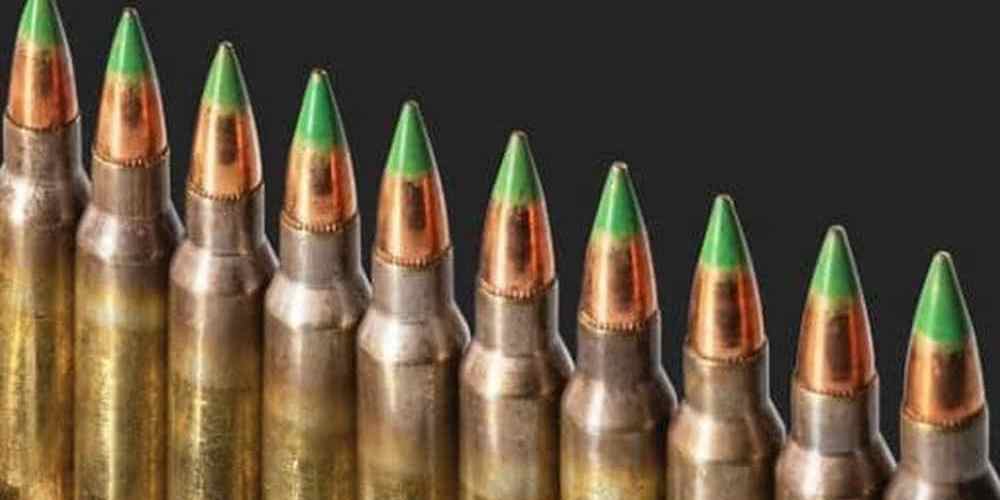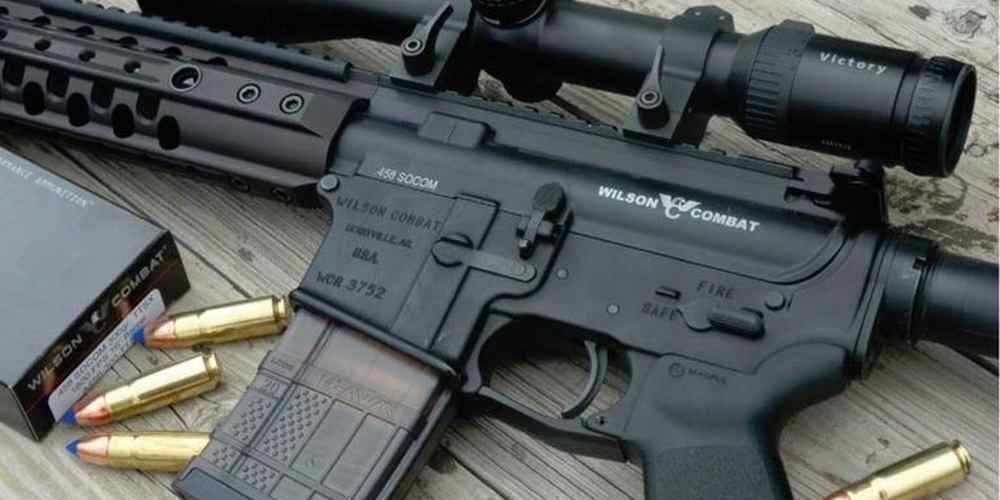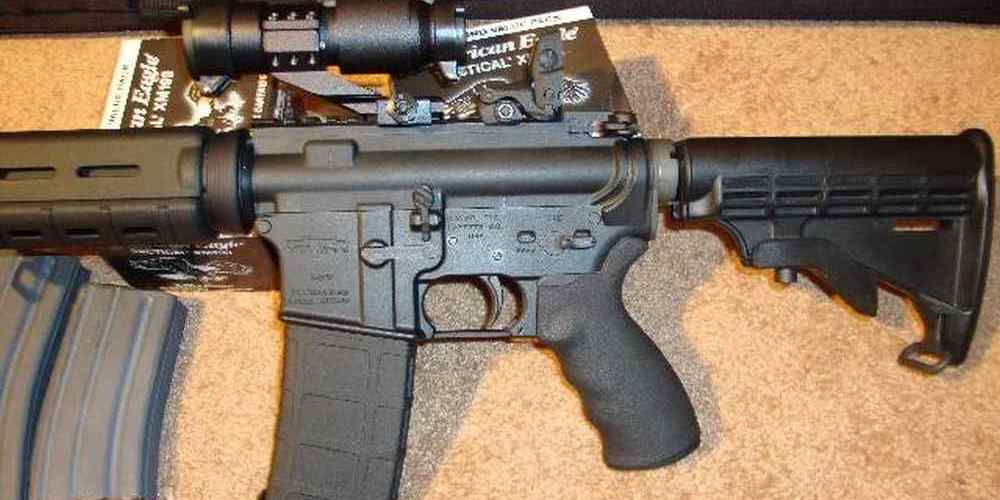“Reloaded AR15 Ammo: Saving money with potential risks.”
Reliability of Reloaded AR15 Ammo
When it comes to purchasing ammunition for your AR15, there are a few options to consider. One of these options is buying reloaded ammo, which is ammunition that has been previously fired and then reloaded with new components. While reloaded ammo can be a cost-effective choice for many gun owners, there are both pros and cons to consider before making a purchase.
One of the main factors to consider when buying reloaded AR15 ammo is the reliability of the ammunition. Reloaded ammo is typically less expensive than factory new ammo, making it an attractive option for shooters looking to save money. However, there are some concerns about the reliability of reloaded ammo, as it may not always perform as consistently as factory new ammo.
One potential issue with reloaded ammo is that the quality of the components used in the reloading process can vary. If the person reloading the ammo is not experienced or does not use high-quality components, there is a risk that the ammunition may not function properly. This can lead to misfires, jams, or other malfunctions that could potentially be dangerous.
On the other hand, many gun owners have had positive experiences with reloaded AR15 ammo and have found it to be just as reliable as factory new ammo. When reloaded properly with high-quality components, reloaded ammo can perform just as well as factory new ammo, making it a cost-effective option for shooters who go through a lot of ammunition.
Another factor to consider when evaluating the reliability of reloaded AR15 ammo is the source of the reloaded ammunition. Some companies specialize in reloading ammunition and have a reputation for producing high-quality, reliable ammo. These companies may conduct thorough quality control checks to ensure that their reloaded ammo meets industry standards for performance and safety.
On the other hand, there are also individuals who reload their own ammunition at home. While some of these reloaders may be experienced and meticulous in their reloading process, others may not have the same level of expertise or attention to detail. This can lead to inconsistencies in the quality of the reloaded ammo, which could impact its reliability.
In conclusion, the reliability of reloaded AR15 ammo can vary depending on the quality of the components used, the experience of the person reloading the ammo, and the source of the reloaded ammunition. While reloaded ammo can be a cost-effective option for shooters looking to save money, it is important to carefully consider the potential risks and benefits before making a purchase. By doing your research and purchasing reloaded ammo from a reputable source, you can increase the likelihood of having a positive experience with reloaded AR15 ammo.
Cost Savings of Buying Reloaded AR15 Ammo
When it comes to purchasing ammunition for your AR15, one option to consider is buying reloaded ammo. Reloaded ammo, also known as reloaded ammunition or handloaded ammunition, is ammunition that has been reassembled using previously fired cartridge cases. This can be a cost-effective option for shooters looking to save money on their ammunition purchases. However, there are both pros and cons to buying reloaded AR15 ammo that should be considered before making a decision.

One of the biggest advantages of buying reloaded AR15 ammo is the cost savings. Reloaded ammunition is typically cheaper than factory-made ammunition, as the cost of the components used to reload the cartridges is lower than the cost of new ammunition. This can be especially beneficial for shooters who go through a large volume of ammunition and are looking to save money on their shooting hobby.
In addition to cost savings, reloaded AR15 ammo can also offer improved accuracy and performance. Reloaded ammunition can be customized to suit the specific needs of the shooter, with different bullet weights, powder charges, and primers being used to achieve the desired performance characteristics. This level of customization can result in more consistent and accurate shooting, which can be a major advantage for competitive shooters or those looking to improve their marksmanship skills.
However, there are also some potential drawbacks to buying reloaded AR15 ammo that should be taken into consideration. One of the main concerns with reloaded ammunition is the potential for quality control issues. Reloaded ammo is typically produced by individuals or small-scale manufacturers, which may not have the same level of quality control measures in place as larger ammunition manufacturers. This can lead to inconsistencies in the performance of the ammunition, which can be a safety concern for shooters.
Another potential drawback of buying reloaded AR15 ammo is the risk of using improperly loaded cartridges. Reloaded ammunition is more susceptible to overpressure or underpressure loads, which can result in malfunctions or damage to the firearm. It is important for shooters to be aware of the risks associated with using reloaded ammunition and to take the necessary precautions to ensure their safety while shooting.
In conclusion, buying reloaded AR15 ammo can be a cost-effective option for shooters looking to save money on their ammunition purchases. Reloaded ammunition can offer improved accuracy and performance, as well as the ability to customize the cartridges to suit the shooter’s specific needs. However, there are also potential drawbacks to consider, including quality control issues and the risk of using improperly loaded cartridges. Shooters should weigh the pros and cons of buying reloaded AR15 ammo carefully before making a decision, and take the necessary precautions to ensure their safety while shooting.
Quality Control Issues with Reloaded AR15 Ammo
When it comes to purchasing ammunition for your AR15, there are a few options available. One of these options is buying reloaded ammo, which is ammunition that has been previously fired and then reloaded with new components. While reloaded ammo can be a cost-effective choice for some shooters, there are also some quality control issues that need to be considered before making a purchase.
One of the main advantages of buying reloaded AR15 ammo is the cost savings. Reloaded ammo is typically cheaper than factory-new ammunition, making it an attractive option for shooters who go through a lot of rounds at the range. This can allow shooters to practice more frequently without breaking the bank.
Another benefit of reloaded ammo is that it can be customized to suit the shooter’s specific needs. Reloaders have the ability to adjust the powder charge, bullet weight, and overall cartridge length to create a load that performs optimally in their firearm. This level of customization can lead to improved accuracy and performance on the range or in the field.
However, there are also some drawbacks to buying reloaded AR15 ammo. One of the main concerns is the lack of quality control in the reloading process. Reloaded ammo is typically produced by individuals or small-scale operations, which may not have the same level of quality control measures in place as large ammunition manufacturers. This can lead to inconsistencies in the ammunition, which can affect performance and reliability.
In addition, there is a risk of using reloaded ammo that has been improperly loaded or contains defective components. This can result in malfunctions or even catastrophic failures that can damage your firearm or cause injury. It is important to thoroughly inspect reloaded ammo before use and only purchase from reputable sources to minimize this risk.
Another issue with reloaded AR15 ammo is the potential for reduced shelf life. Reloaded ammo may not have the same level of longevity as factory-new ammunition, as the components used in the reloading process may degrade over time. This can lead to decreased performance and reliability, especially if the ammo has been stored improperly.
Despite these drawbacks, many shooters find reloaded AR15 ammo to be a viable option for their shooting needs. By purchasing from reputable sources and thoroughly inspecting each round before use, shooters can mitigate some of the quality control issues associated with reloaded ammo. Additionally, the cost savings and customization options make reloaded ammo an attractive choice for those looking to stretch their shooting budget or fine-tune their loads for optimal performance.
In conclusion, buying reloaded AR15 ammo has its pros and cons. While cost savings and customization options make reloaded ammo an appealing choice for many shooters, there are also quality control issues that need to be considered. By being aware of these potential drawbacks and taking precautions when purchasing and using reloaded ammo, shooters can enjoy the benefits of reloaded ammunition without compromising on safety or performance.
Performance Differences in Reloaded AR15 Ammo
When it comes to purchasing ammunition for your AR15, there are a variety of options available on the market. One option that some gun owners consider is buying reloaded AR15 ammo. Reloaded ammo is ammunition that has been previously fired and then reloaded with new components. While there are some benefits to buying reloaded AR15 ammo, there are also some drawbacks to consider.
One of the main advantages of buying reloaded AR15 ammo is cost savings. Reloaded ammo is typically cheaper than factory new ammunition, making it an attractive option for shooters who go through a lot of rounds at the range. Additionally, some gun owners prefer the customization options that come with reloaded ammo. Reloaders can tailor their ammunition to their specific needs, adjusting factors such as bullet weight, powder charge, and primer type to achieve optimal performance.
However, there are some potential downsides to buying reloaded AR15 ammo. One of the main concerns is quality control. Reloaded ammo is more likely to have inconsistencies in performance compared to factory new ammunition. This can lead to issues such as misfires, squibs, or other malfunctions that could potentially damage your firearm. Additionally, some gun ranges and competitions may not allow the use of reloaded ammo due to safety concerns.
In terms of performance differences, there are a few key factors to consider when comparing reloaded AR15 ammo to factory new ammunition. One of the main differences is in accuracy. Reloaded ammo may not be as consistent in terms of bullet weight and powder charge, which can affect the overall accuracy of your shots. Factory new ammunition is typically more reliable in terms of performance, making it a better option for precision shooting.
Another performance difference to consider is in reliability. Reloaded ammo may be more prone to malfunctions such as misfires or squibs, which can be dangerous if not properly addressed. Factory new ammunition is generally more reliable in terms of function, making it a safer option for use in your AR15.
In conclusion, there are both pros and cons to buying reloaded AR15 ammo. While reloaded ammo can offer cost savings and customization options, it may also come with quality control issues that could affect performance and safety. When considering whether to purchase reloaded AR15 ammo, it is important to weigh these factors carefully and make an informed decision based on your individual needs and preferences. Ultimately, the choice between reloaded and factory new ammunition will depend on your priorities as a shooter and what you value most in terms of performance and reliability.
Legal Implications of Using Reloaded AR15 Ammo
When it comes to purchasing ammunition for your AR15, there are a few options to consider. One of these options is buying reloaded ammo. Reloaded ammo is ammunition that has been previously fired and then reloaded with new components. While there are some benefits to using reloaded ammo, there are also some potential drawbacks to consider.
One of the main advantages of buying reloaded AR15 ammo is cost savings. Reloaded ammo is typically cheaper than factory new ammunition, making it an attractive option for shooters looking to save money. Additionally, some shooters believe that reloaded ammo can be just as reliable and accurate as factory new ammo, especially when it is loaded by a reputable manufacturer.
However, there are also some potential downsides to using reloaded ammo. One of the main concerns is safety. Reloaded ammo may not undergo the same quality control measures as factory new ammo, which could potentially lead to malfunctions or even catastrophic failures. Additionally, using reloaded ammo could void the warranty on your firearm, as some manufacturers do not recommend using reloaded ammunition in their guns.
Another consideration when it comes to using reloaded ammo is legal implications. In some states, using reloaded ammo may be subject to certain restrictions or regulations. For example, some states require that reloaded ammo be labeled as such, or that it be used only for personal use and not for resale. It is important to familiarize yourself with the laws and regulations in your state before purchasing reloaded ammo to ensure that you are in compliance.
Furthermore, using reloaded ammo could potentially impact your liability in the event of a shooting incident. If you were to use reloaded ammo that malfunctioned and caused injury or damage, you could be held liable for any resulting harm. It is important to weigh the potential legal risks of using reloaded ammo against the cost savings and other benefits.
In conclusion, there are both pros and cons to consider when it comes to buying reloaded AR15 ammo. While reloaded ammo can offer cost savings and potentially be just as reliable as factory new ammo, there are also safety concerns and legal implications to take into account. It is important to do your research and make an informed decision based on your individual needs and circumstances. If you do choose to use reloaded ammo, be sure to purchase it from a reputable manufacturer and follow all safety guidelines to minimize any potential risks.






